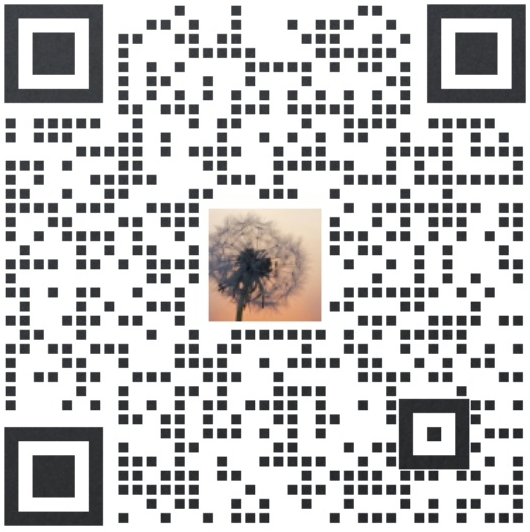音频科普:一起把墙改造成实用触摸屏
音频科普:一起把墙改造成实用触摸屏
Researchers used a couple of hundred dollars worth of materials to turn a wall into a giant touch screen.研究人员用几百美元的材料将墙壁变成巨型触摸屏。
撰文\播音:史蒂夫·米尔斯基(Steve Mirsky)
翻译:陈美娟
Hi, I’m Scientific American podcast editor Steve Mirsky. And here’s a short piece from the July 2018 issue of the magazine, in the section called Advances: Dispatches from the Frontiers of Science, Technology and Medicine.
嘿大家好,我是《科学美国人》博客史蒂夫·米尔斯基。接下来是摘自2018年7月号《学界进展:科学,技术与医药前瞻文章》上的小文章。
Smart Walls by Prachi Patel.
《智能墙》,普拉奇·帕特尔(Prachi Patel)作。
The right paint can add pizazz to your walls—and now it can also make them smarter. Researchers recently converted a wall into an outsize trackpad and motion sensor by using low-cost conductive paint to create a large grid of electrodes.
合适的涂料可以在墙壁涂出披萨形状,而现在,涂料也可以使墙壁变得智能。最近,研究人员利用低成本的导电涂料在墙上创建了一个巨大的电极网格,将一堵墙改造成一个大型的轨迹板和运动传感器。
Such a smart wall can sense human touch and track gestures from a short distance. It can also detect the locations of appliances and whether they are switched on. The technology could someday turn on lights when a person enters a room, track a player's motion in an interactive video game or monitor a child's television use. Yang Zhang, a computer science doctoral student at Carnegie Mellon University, who helped to develop the concept.
这样一个智能墙可以近距离感应到人的触摸和手势。它还可以检测电器的位置以及接通情况。将来有一天,这种技术可以具有在人进入房间时就打开灯、在交互式电子游戏中跟踪玩家的动作,或者监控孩子看电视情况等功能。张杨是卡内基梅隆大学计算机科学专业的博士生,他有参与这种技术的开发。
To create the high-tech surface, Zhang and his colleagues applied painter's tape in a lattice pattern to a 12-by-eight-foot wall, then coated it with commercially available conductive nickel paint. Removing the tape left a pattern of diamond-shaped electrodes, which the researchers connected using a grid of thin copper tape strips. They affixed a vinyl sticker in the middle of each diamond to insulate the electrodes from one another. Finally, they wired the strips to a custom-built circuit board and covered the wall with standard latex paint. The entire project took four hours and cost less than $200.
为了构造这种高科技的墙面,张杨和他的同事们把作画用的胶带一格格贴在12×8英尺的墙上,然后用市面上可买到的导电镍颜料覆盖住。移除胶带后留下一个个菱形的电极图案,研究人员用薄铜带连接起来每格图案。他们在每个菱形图案中间贴上一层乙烯基贴纸,使电极彼此绝缘。最后,他们把各束铜带连接到一个定制的电路板上,再用标准的乳胶漆覆盖墙。整个项目耗时四小时,成本不到200美元。
Zhang and his colleagues at Disney Research presented the wall at the CHI Conference on Human Factors in Computing Systems in Montreal.
在蒙特利尔召开的以“计算机系统中人为因素干扰”为主题的 CHI大会上,张杨和他来自迪斯尼研究部的同事们展示了这面墙的功能。
In tracking a touch or gesture, the wall functions similarly to a smartphone screen. The circuit board prompts the electrodes to emit an electric field; when a person's body intercepts this field, it triggers a measurable change in current at the nearby electrodes.
在对触摸或手势进行追踪的时候,这面墙的功能与智能手机屏幕相似。墙中的电路板促使电极发出电场;当人体阻挡该电场时,它会触发附近电极上电流产生可测量变化。
In the wall's appliance-detection mode, the power is turned off, and the electrodes act as an antenna to passively pick up electromagnetic waves emitted by nearby devices. The researchers detected iPads up to 6.5 feet away from of the wall; fans and floor lamps could be sensed from about 10 feet.
在墙壁的设备检测模式下,电源关闭,电极作为天线被动地接收附近设备发射的电磁波。研究人员把iPad放到离墙6.5英尺远,这面墙可以感应到10英尺内的风扇和落地灯。
That was Smart Walls by Prachi Patel.
这是普拉奇·帕特尔的《智能墙》。
关注【深圳科普】微信公众号,在对话框:
回复【最新活动】,了解近期科普活动
回复【科普行】,了解最新深圳科普行活动
回复【研学营】,了解最新科普研学营
回复【科普课堂】,了解最新科普课堂
回复【科普书籍】,了解最新科普书籍
回复【团体定制】,了解最新团体定制活动
回复【科普基地】,了解深圳科普基地详情
回复【观鸟知识】,学习观鸟相关科普知识
回复【博物学院】,了解更多博物学院活动详情
Researchers used a couple of hundred dollars worth of materials to turn a wall into a giant touch screen.研究人员用几百美元的材料将墙壁变成巨型触摸屏。
撰文\播音:史蒂夫·米尔斯基(Steve Mirsky)
翻译:陈美娟
Hi, I’m Scientific American podcast editor Steve Mirsky. And here’s a short piece from the July 2018 issue of the magazine, in the section called Advances: Dispatches from the Frontiers of Science, Technology and Medicine.
嘿大家好,我是《科学美国人》博客史蒂夫·米尔斯基。接下来是摘自2018年7月号《学界进展:科学,技术与医药前瞻文章》上的小文章。
Smart Walls by Prachi Patel.
《智能墙》,普拉奇·帕特尔(Prachi Patel)作。
The right paint can add pizazz to your walls—and now it can also make them smarter. Researchers recently converted a wall into an outsize trackpad and motion sensor by using low-cost conductive paint to create a large grid of electrodes.
合适的涂料可以在墙壁涂出披萨形状,而现在,涂料也可以使墙壁变得智能。最近,研究人员利用低成本的导电涂料在墙上创建了一个巨大的电极网格,将一堵墙改造成一个大型的轨迹板和运动传感器。
Such a smart wall can sense human touch and track gestures from a short distance. It can also detect the locations of appliances and whether they are switched on. The technology could someday turn on lights when a person enters a room, track a player's motion in an interactive video game or monitor a child's television use. Yang Zhang, a computer science doctoral student at Carnegie Mellon University, who helped to develop the concept.
这样一个智能墙可以近距离感应到人的触摸和手势。它还可以检测电器的位置以及接通情况。将来有一天,这种技术可以具有在人进入房间时就打开灯、在交互式电子游戏中跟踪玩家的动作,或者监控孩子看电视情况等功能。张杨是卡内基梅隆大学计算机科学专业的博士生,他有参与这种技术的开发。
To create the high-tech surface, Zhang and his colleagues applied painter's tape in a lattice pattern to a 12-by-eight-foot wall, then coated it with commercially available conductive nickel paint. Removing the tape left a pattern of diamond-shaped electrodes, which the researchers connected using a grid of thin copper tape strips. They affixed a vinyl sticker in the middle of each diamond to insulate the electrodes from one another. Finally, they wired the strips to a custom-built circuit board and covered the wall with standard latex paint. The entire project took four hours and cost less than $200.
为了构造这种高科技的墙面,张杨和他的同事们把作画用的胶带一格格贴在12×8英尺的墙上,然后用市面上可买到的导电镍颜料覆盖住。移除胶带后留下一个个菱形的电极图案,研究人员用薄铜带连接起来每格图案。他们在每个菱形图案中间贴上一层乙烯基贴纸,使电极彼此绝缘。最后,他们把各束铜带连接到一个定制的电路板上,再用标准的乳胶漆覆盖墙。整个项目耗时四小时,成本不到200美元。
Zhang and his colleagues at Disney Research presented the wall at the CHI Conference on Human Factors in Computing Systems in Montreal.
在蒙特利尔召开的以“计算机系统中人为因素干扰”为主题的 CHI大会上,张杨和他来自迪斯尼研究部的同事们展示了这面墙的功能。
In tracking a touch or gesture, the wall functions similarly to a smartphone screen. The circuit board prompts the electrodes to emit an electric field; when a person's body intercepts this field, it triggers a measurable change in current at the nearby electrodes.
在对触摸或手势进行追踪的时候,这面墙的功能与智能手机屏幕相似。墙中的电路板促使电极发出电场;当人体阻挡该电场时,它会触发附近电极上电流产生可测量变化。
In the wall's appliance-detection mode, the power is turned off, and the electrodes act as an antenna to passively pick up electromagnetic waves emitted by nearby devices. The researchers detected iPads up to 6.5 feet away from of the wall; fans and floor lamps could be sensed from about 10 feet.
在墙壁的设备检测模式下,电源关闭,电极作为天线被动地接收附近设备发射的电磁波。研究人员把iPad放到离墙6.5英尺远,这面墙可以感应到10英尺内的风扇和落地灯。
That was Smart Walls by Prachi Patel.
这是普拉奇·帕特尔的《智能墙》。
关注【深圳科普】微信公众号,在对话框:
回复【最新活动】,了解近期科普活动
回复【科普行】,了解最新深圳科普行活动
回复【研学营】,了解最新科普研学营
回复【科普课堂】,了解最新科普课堂
回复【科普书籍】,了解最新科普书籍
回复【团体定制】,了解最新团体定制活动
回复【科普基地】,了解深圳科普基地详情
回复【观鸟知识】,学习观鸟相关科普知识
回复【博物学院】,了解更多博物学院活动详情

做科普,我们是认真的!
扫描关注深i科普公众号
加入科普活动群

- 参加最新科普活动
- 认识科普小朋友
- 成为科学小记者
 会员登录
会员登录
















 深圳市宝安区国际会展中心20号馆
深圳市宝安区国际会展中心20号馆







